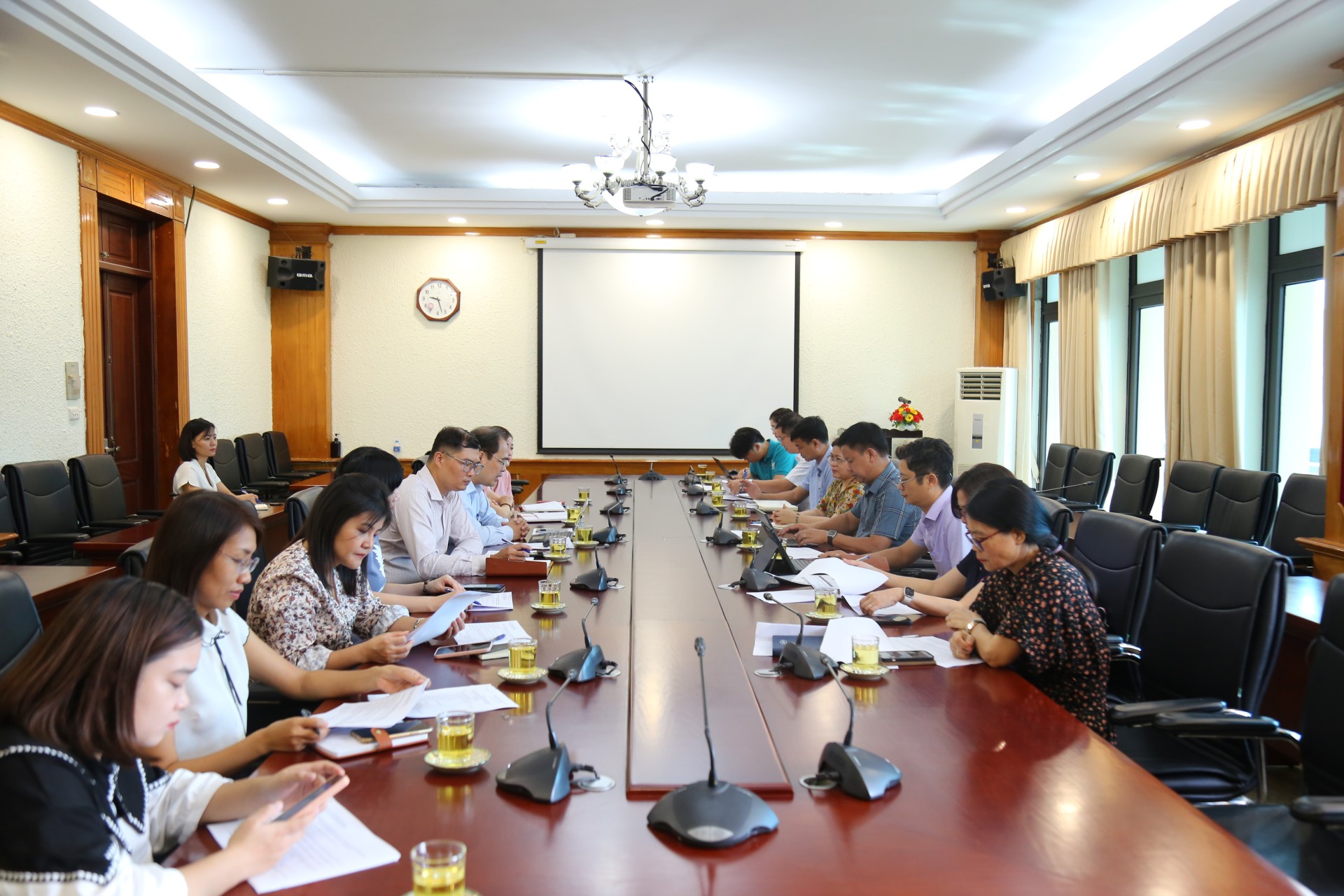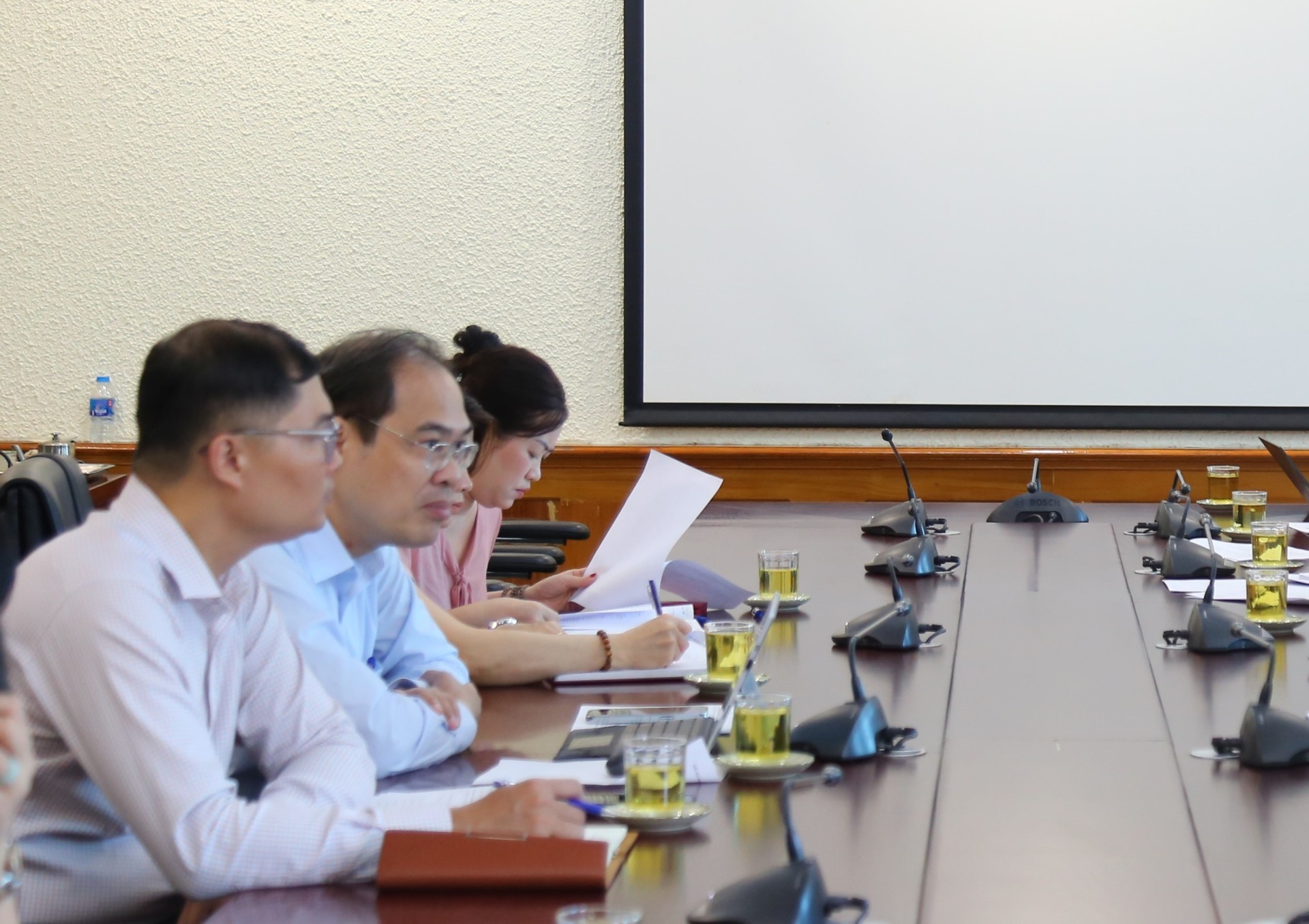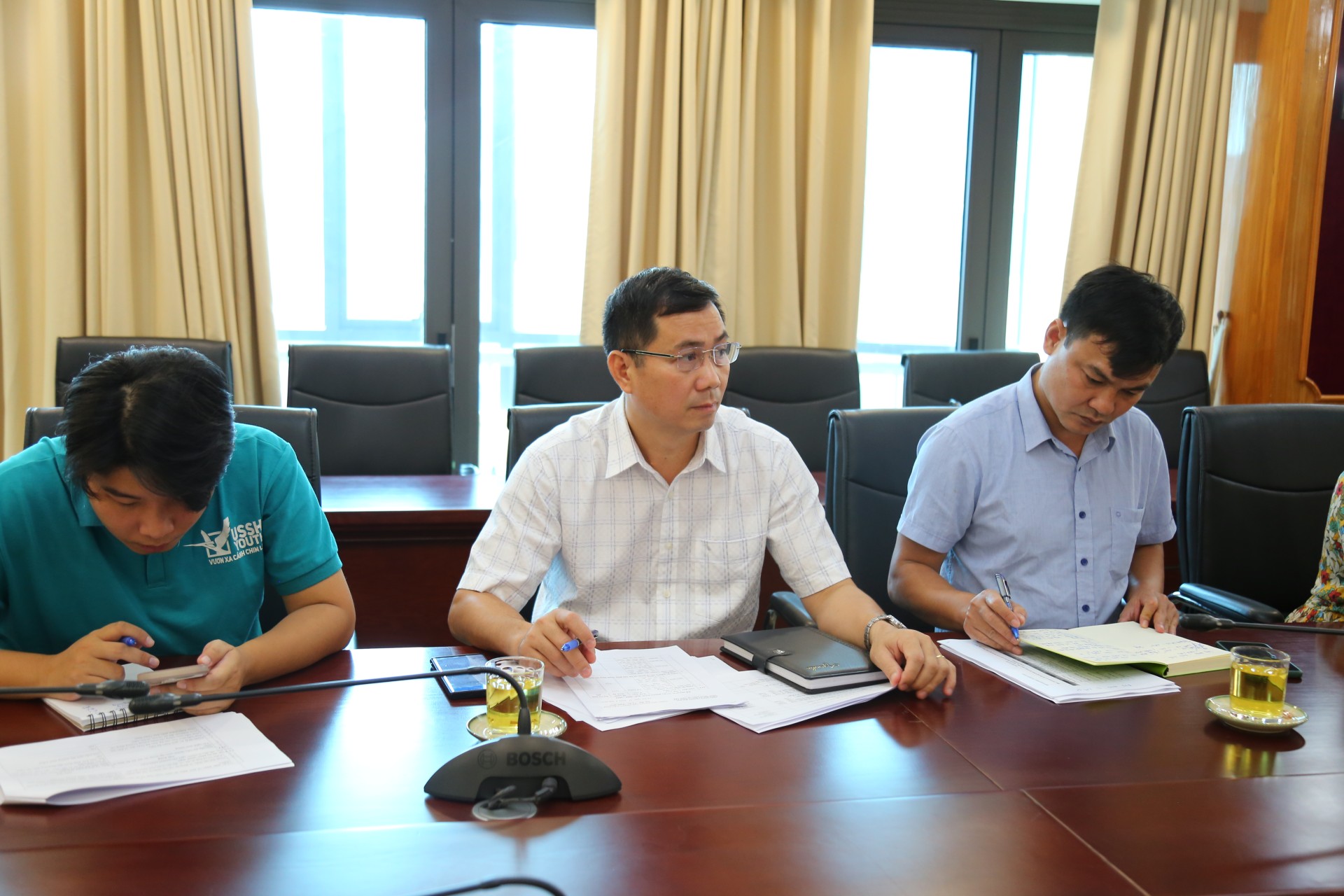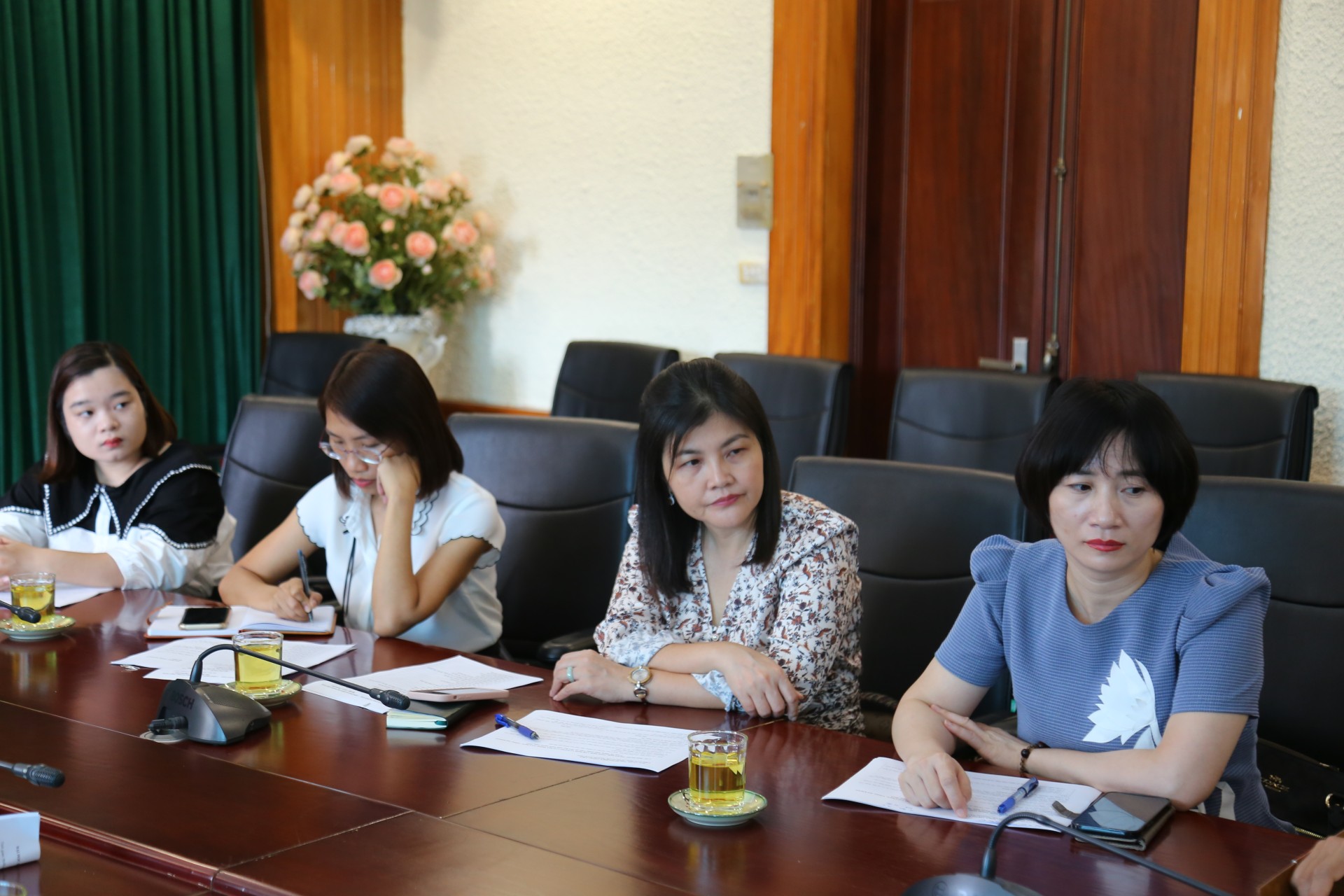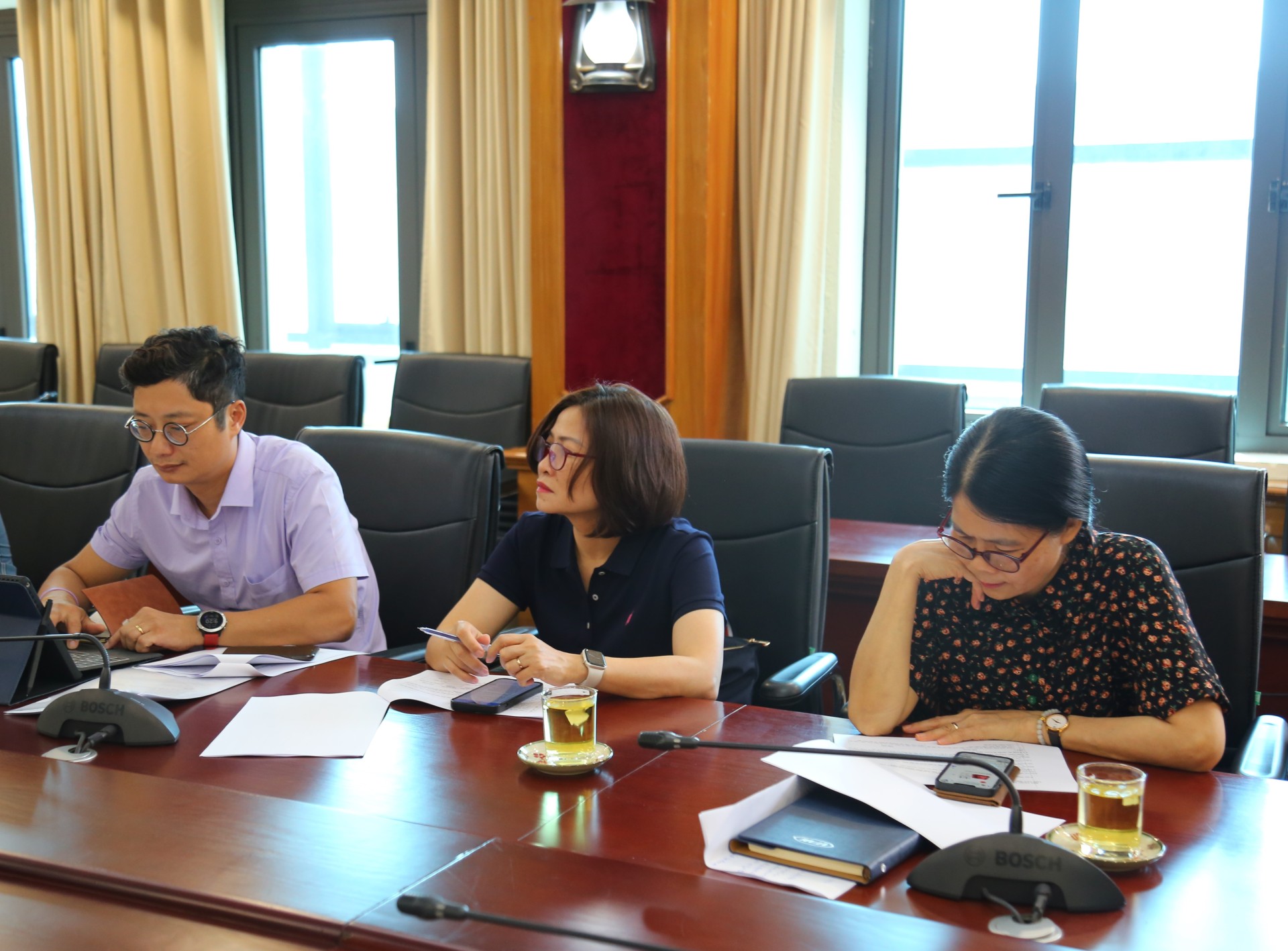Also attending were the leaders of the following departments: Administration - General Affairs, Cooperation and Development, Planning - Finance; the Faculty of Vietnamese Studies and Vietnamese Language, the Faculty of Linguistics; the Secretary of the Youth Union, and the President of the Student Association of the university.
Speaking on behalf of the Organizing Committee, Dr. Nguyen Hai Thanh shared: On August 16, 2023, the Organizing Committee issued the competition rules, and to date, 36 teams from the Northern region, 16 from the Central region, and 13 from the Southern region have registered to participate, coming from many universities across the country. This shows the interest of universities and educational institutions, as well as the love and passion for learning Vietnamese language and culture among foreign students studying in Vietnam.
Dr. Nguyen Thanh Hai also shared: To select teams to participate in the Northern regional preliminary round, universities organized various competitions such as essay writing and theatrical performances to choose the most outstanding students to represent their respective institutions in the regional preliminary round.
The Ministry of Education and Training has great confidence and reassurance in choosing the University of Social Sciences and Humanities, Vietnam National University, Hanoi, as the host institution for this event. This is because the University has a team of scientists and experts in teaching Vietnamese language and culture to foreigners, along with extensive experience in organizing numerous national and international events and conferences. With a large number of participating teams from the Northern region, the Organizing Committee hopes that the University will cooperate closely with the relevant departments of the Ministry of Education and Training to ensure the best possible preparation for the competition's success (receiving delegates, contestants, and supporters from the 36 participating teams; arranging competition venues; ensuring security and safety; and managing media coverage, etc.).
According to the plan, the competition will take place over one day (expected on Saturday, October 28th). Prior to that, the teams will draw lots to determine the order of performance and will receive guidance from the Organizing Committee through rehearsals to ensure that the performances run smoothly and successfully on the official competition day.
On behalf of the University of Social Sciences and Humanities, Vice Rector Lai Quoc Khanh sincerely thanked the leaders of the Ministry of Education and Training and the Organizing Committee of the Competition for entrusting the University with the task of hosting the preliminary round of the Vietnamese Oratory Competition for international students. This is an extremely meaningful activity, not only promoting the emulation movement in learning and improving the quality of training for international students, but also contributing to strengthening friendship and cultural exchange between Vietnam and countries around the world. The competition will create a truly beneficial platform for international students from many countries around the world studying at all universities and educational institutions in Vietnam to have the opportunity to interact, meet, exchange, and express their love and passion for exploring the beauty of the Vietnamese language, people, and culture. These international students will also be ambassadors promoting and spreading the Vietnamese language and culture to a wider audience around the world.
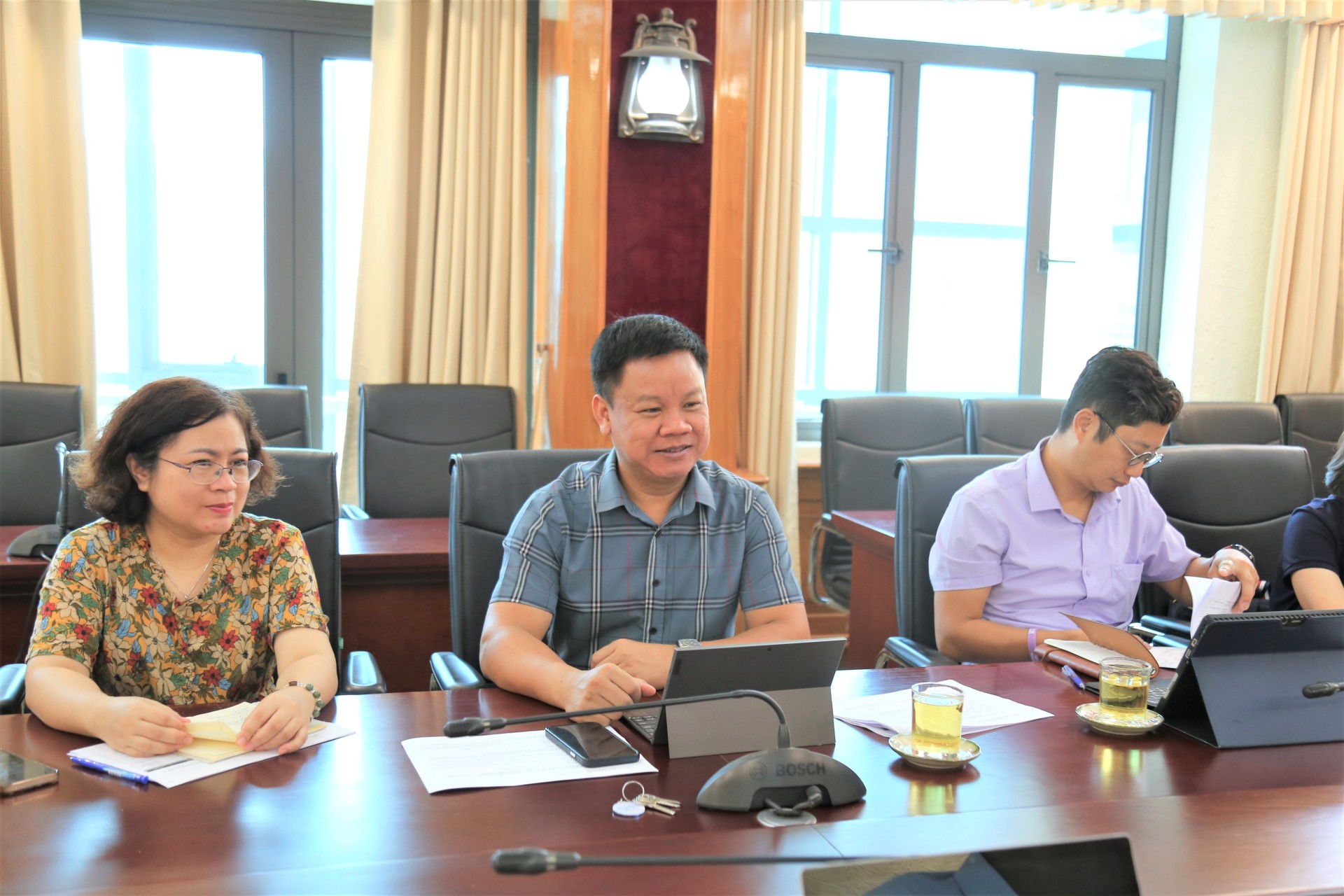
With a long-standing tradition and a large team of leading lecturers and experts in Vietnamese language training as well as teaching Vietnamese history, language, and culture to foreigners, the school is confident in its capacity to successfully organize the competition. The school commits to closely coordinating with the relevant departments and agencies of the Ministry of Education and Training to ensure thorough preparation and a successful preliminary round held at the school.
Delegates participating in the meeting discussed specific details of the plan to organize the preliminary round of the competition at the University of Social Sciences and Humanities.
At the end of the meeting, both sides reviewed all content, implementation progress, assigned responsibilities to each party, and designated specific contact persons for each work item to ensure close and effective coordination.
